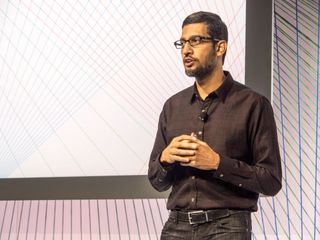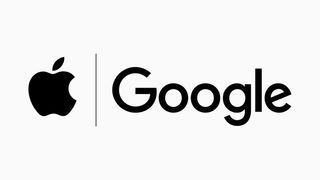Sundar Pichai isn't ready for Google employees to work from home full-time

What you need to know
- Wired recently interviewed Google CEO Sundar Pichai, covering a wide range of topics.
- Pichai talked about Google's response to the pandemic, contact tracing, etc.
- Once all is said and done, Pichai doesn't see Google becoming a 100% remote company.
We talk a lot about Google here on AC, and as with any company we often discuss, it's important to have a better understanding of the people behind it. Sundar Pichai is the CEO of both Google and parent company Alphabet, meaning he's got quite a lot on his place.
The folks at Wired recently conducted an interview with Pichai, asking a variety of questions that mostly revolved around where the company stands in a world with an ongoing global pandemic.
The topic of "work from home" is one we've seen a lot given everything that's happened, and this is something Google's also had to adapt to. Commenting on Google's response to this, Pichai says:
Once we realized this was going to be bigger than any of us imagined, two quick thoughts: First, how do we keep our employees safe? So as early as we possibly could, we had to move the company to a distributed, global, work from home model. Second, in some ways Google and Alphabet were built for this moment. We are here to provide people information, help them in moments where they need help. So we realized it was important to step up our products and services but also the help we can give to communities and institutions.
It's been interesting to see how other major tech companies are handling work from home, with Twitter and Square announcing that employees will have the option to work from home permanently, along with Facebook CEO Mark Zuckerberg saying that 50% of the company's staff will likely be working from home full-time over the next five-ten years.
Pichai says that he expects Google will "adapt" to the new way work is conducted, but that there's still value to be had in traditional, face-to-face environments.
I don't think we are going to come out of this and be back where we were before this all started. So I expect us to adapt but it's still too early to tell how much. Early on, I'm excited that some of this is working well. But it is based on a foundation of all of us knowing each other and having the regular interactions we already had. I'm curious to see what happens as we get into that three-to-six-month window and we get into things where we are doing something for the first time. How productive will we be when different teams who don't normally work together have to come together for brainstorming, the creative process? We are going to have research, surveys, learn from data, learn what works.In all scenarios I expect us to need physical spaces to get people together, absolutely. We have a lot of growth planned ahead. So even if there is some course correction I don't think our existing footprint is going to be the issue. I am positive we will put it to good use and I'm anxious to see some of those projects get done.

Another hot topic of discussion lately has been that of contact tracing. Google and Apple worked together to create the Exposure Notification API, which can help people determine if they've come in contact with someone that may have been exposed to COVID-19. In regards to how the partnership came together, Pichai says:
Both teams independently had started working on technology to support health agencies in their contact tracing work. Very quickly both sides realized that for this to work well it has to be available everywhere. So engineering teams across Android and iOS organically started reaching out. At some point, Tim and I decided to exchange notes and talk directly.
Two of the world's largest tech companies creating an API that can track user location obviously has a lot of people talking, and Pichai notes that he's fully aware of those concerns.
Be an expert in 5 minutes
Get the latest news from Android Central, your trusted companion in the world of Android
You are right, opt-in is an important principle. We also realized we have to give users real privacy guarantees. I think we have struck the right balance. Even if only 10 to 20 percent of users opt in, this will have a real, meaningful impact. The more, the better.
FAQ: What is the Google-Apple COVID-19 (coronavirus) Exposure Notifications system?
Joe Maring was a Senior Editor for Android Central between 2017 and 2021. You can reach him on Twitter at @JoeMaring1.

